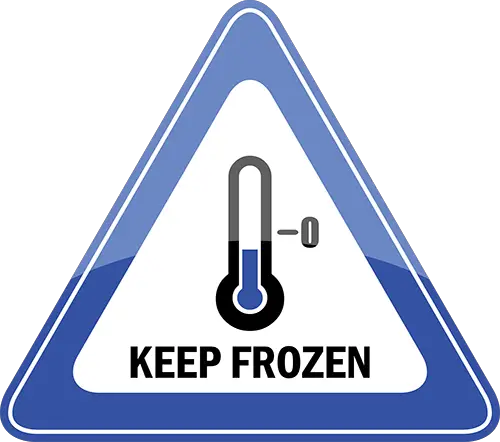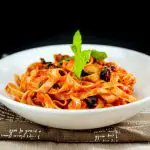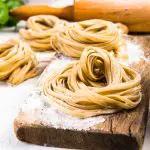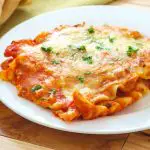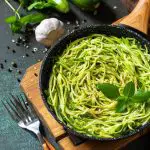How To Freeze Fresh Pasta & Cook It From Frozen (Easy Guide)
For many people, a “Spaghetti Dinner” means going to the local store, getting the ingredients for making a homemade pasta sauce or delicious homemade meatballs, and a box of spaghetti. However, some elaborate cooks consider homemade spaghetti the only proper spaghetti dinner. But what happens if you make too much pasta—can you freeze fresh pasta?
You can freeze fresh pasta for anywhere between one and three months. If you’re only trying to save pasta for a few days, you can keep the fresh pasta in the refrigerator for about three days. After that period, you’ll want to freeze, eat, or dispose of the pasta.
While homemade pasta is delicious, it’s often difficult and time-consuming to make. Read on to learn more about how to avoid throwing away homemade pasta by freezing it, the right ways to recook frozen pasta, and other tricks to preserve your food for longer.
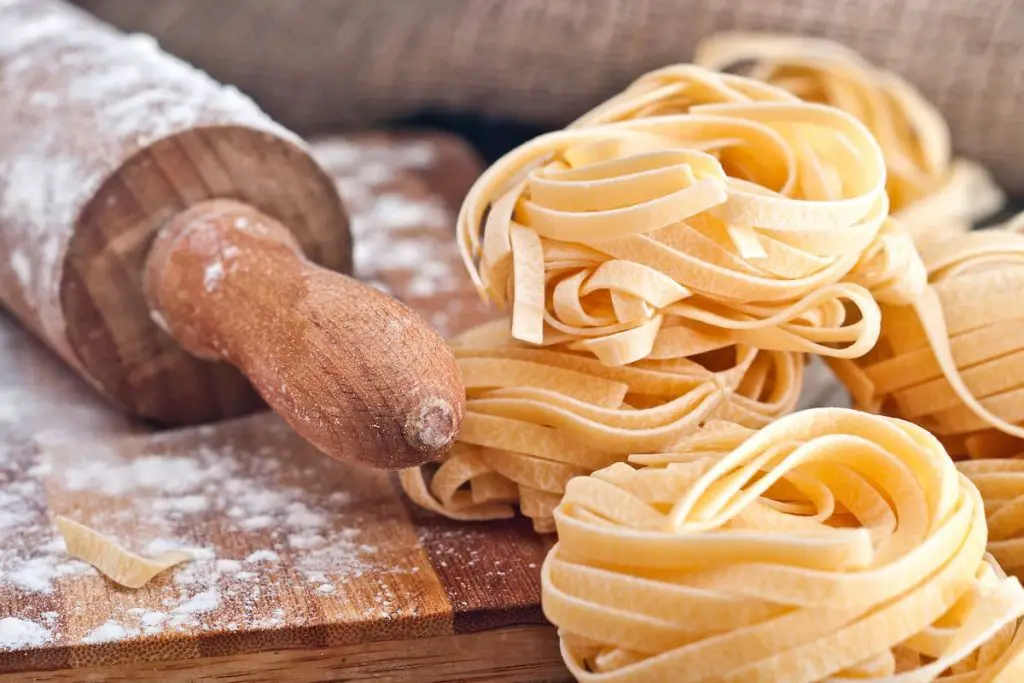
Freeze Fresh Pasta if You Want To Keep It for More Than 3 Days
While pasta seems to be a favorite food among many, it’s relatively uncommon these days for people to make homemade pasta from scratch. Most people, myself included, are just as happy eating pasta from a box from the grocery store.
Some people, however, refuse to eat pre-prepared pasta and will only eat it from scratch (I must admit, it does taste even better). If you happen to be one of those people, then you likely know the time and energy it takes to make a batch of homemade pasta—you don’t want to see it go to waste!
Fortunately, homemade pasta can be kept for a while after it has been prepared. If you’re saving fresh pasta or pasta dough for only a couple of days, you can simply refrigerate it and cook it when ready. Doing so will keep the pasta relatively fresh for about three days.
However, if you want to keep your pasta for longer than three days, you’ll want to freeze the pasta. Freezing fresh pasta will keep it fresh and delicious for about three months.
Freezing homemade pasta can be different from simply freezing other foods. You want to take some specific steps to ensure your pasta lasts. Let’s look a little bit deeper at how you can freeze fresh pasta.
How To Freeze Fresh Pasta (Cooked & UnCooked)
When making fresh pasta, the combination of ingredients used makes the pasta have more of a dough-like consistency. Though not particularly “wet,” the pasta isn’t dry like how you’d find it in a box sold at the store.
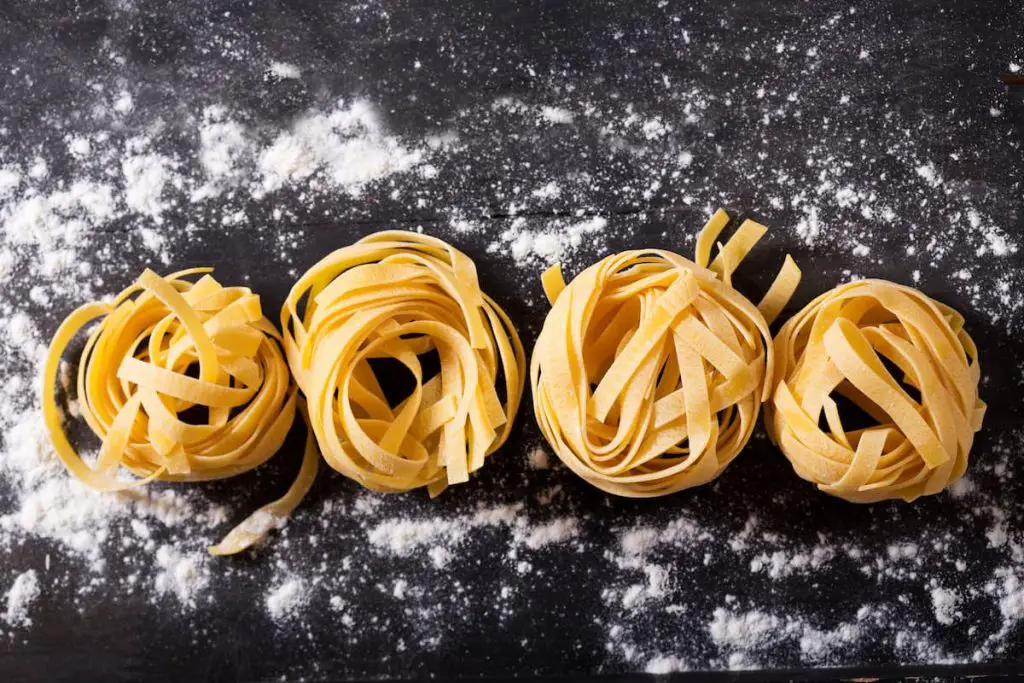
In order to freeze fresh pasta, you need to dry it first. Take the pasta and lay it out either on a cookie sheet or on a drying rack and allow the pasta to dry. This step will remove the moisture and give it the hard consistency you’ll need to freeze it with.
After the pasta is dried, coat it in flour and place it in a bag to freeze. The flour will prevent the noodles from sticking together when frozen.
If you don’t want the pasta frozen in individual pieces and would prefer to freeze it by serving size, simply wrap the pasta into a circle and allow it to dry. This step will create a “pasta nest” you can use to serve when using the pasta in the future. It works with both uncooked and cooked pasta.
Don’t Thaw Uncooked Pasta Before Cooking It
After learning to freeze homemade pasta, the next logical question you’ll likely be asking yourself is, “How do I cook frozen pasta?”
Surprisingly, cooking homemade pasta that has been frozen is just as easy as cooking pasta from a box. When it is time to cook your frozen pasta, decide how much you want to cook, add it to a pot of boiling water that has been lightly salted, and serve when the desired level of firmness has been achieved.
Most importantly, you don’t want to thaw uncooked pasta before cooking it. Thawing frozen uncooked pasta can change the texture and, to a lesser degree, the flavor of the pasta.
Alternatively, if you have frozen cooked pasta, then allow it to thaw in the refrigerator overnight. Don’t recook the previously cooked pasta; rather, heat it slowly in an oven or microwave to allow the pasta to re-soften. Reboiling the pasta can destroy its texture and shape.
If you have frozen the dough to make pasta, simply allow it to thaw either inside of a plastic bag placed in warm water or in your refrigerator overnight. Once thawed, you can use this dough to create noodles of different sizes and shapes.
Should you want to cook these new noodles, you may, or you can decide to freeze these new noodles. Once the dough is thawed, it is essentially as good as new!
Reduce Food Waste by Not Wasting Your Pasta
While everyone will produce some sort of food waste in their lifetimes, reducing the amount of waste every person creates can help to preserve our environment for years to come.
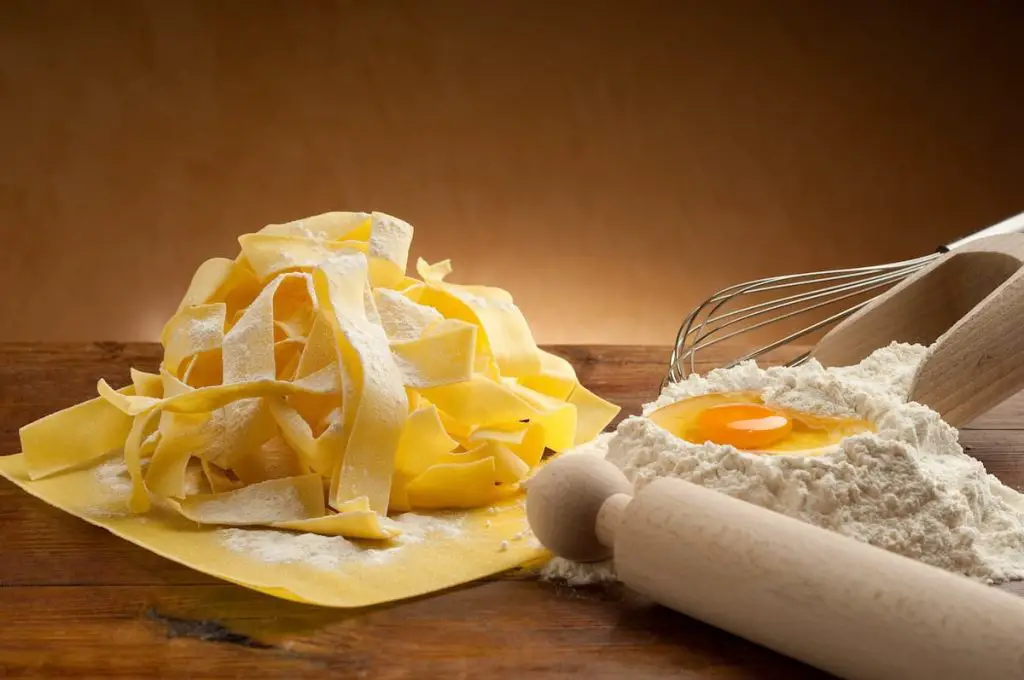
The United States sends about 35.3 million tons (77.8 billion pounds) of food waste to landfills every year. Food waste is one of the biggest types of waste humans produce. If possible, we should prevent pasta from being added to this food waste.
If you make too much fresh pasta, be sure to freeze it to use later, or invite other people to have some homemade pasta to prevent food waste. If you cannot use it all yourself, feel free to share your pasta with animals. Most cats and dogs can safely consume cooked pasta noodles that contain nothing else.
If your fresh pasta is no longer safe to consume, it’s okay. Rather than throw away the pasta in the trash, compost it! Uncooked pasta is one of the best forms of compost because it will break down incredibly quickly.
Cooked pasta can also be composted. But you should cut it into small pieces and keep it away from animals whenever possible.
Final Thoughts
Making pasta from scratch, though delicious, takes a lot of work. You want to try to preserve it for as long as you can.
Freezing pasta and pasta dough allows you to save pasta for up to three months. Suppose you want to save cooked pasta for just a few days. Then refrigerate it. However, you should eat the cooked pasta within three days.
If you can’t finish your pasta, feel free to compost it or feed it to animals. Try to reduce food waste whenever possible!
